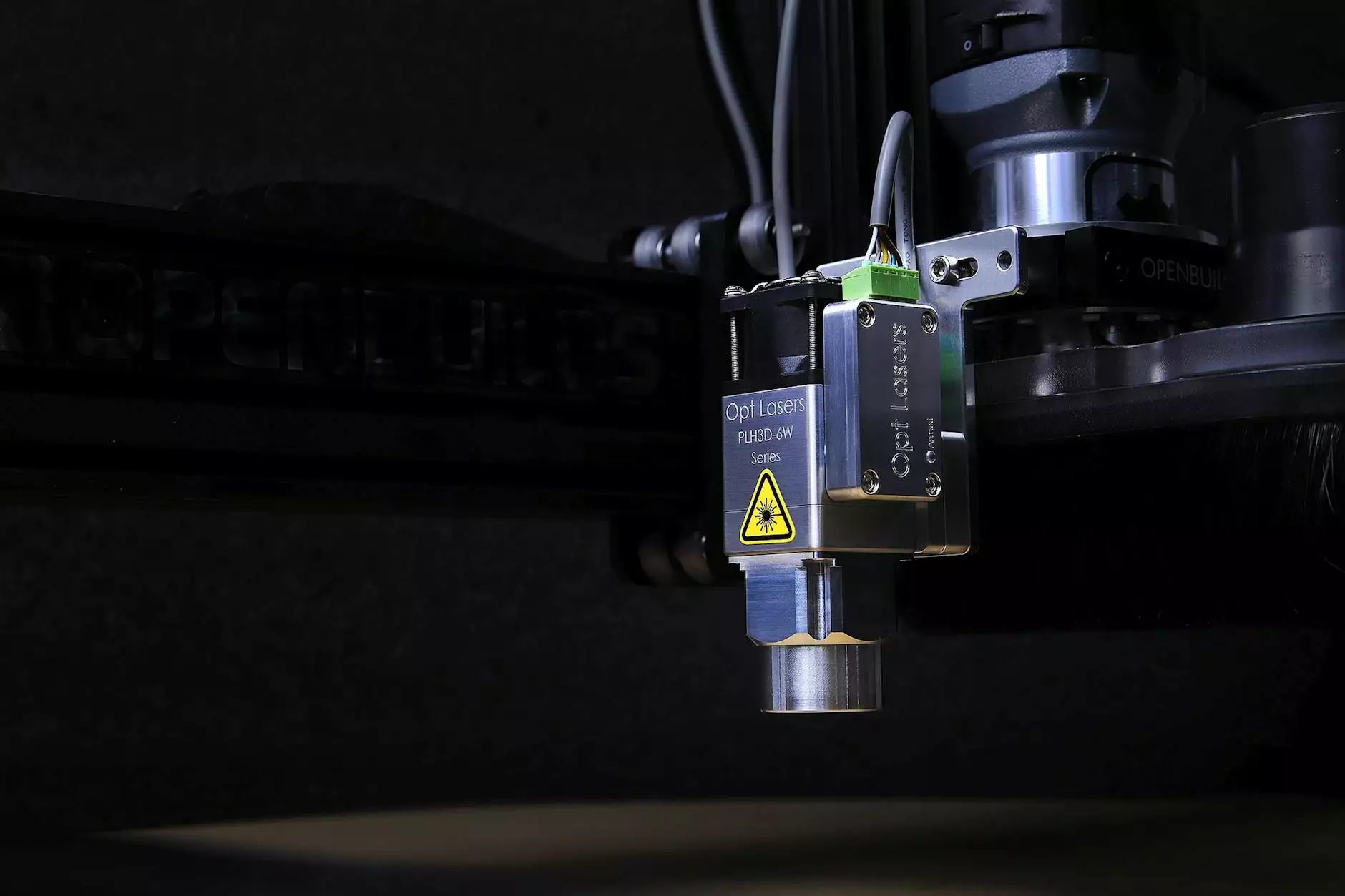CNC Turning Metal Part Suppliers

CNC turning metal part suppliers play a crucial role in the manufacturing industry, providing high-quality components that are essential for a wide array of applications. Understanding their significance and the intricacies of their operations can illuminate the vast capabilities they bring to the table. This article delves into the various aspects surrounding cnc turning metal part suppliers, highlighting their operational processes, benefits, and considerations for businesses seeking reliable partners in manufacturing.
Understanding CNC Turning and Its Importance
CNC (Computer Numerical Control) turning is a method of machining that utilizes computerized controls to operate lathes, mills, and other machine tools. It allows for the creation of complex shapes and precision parts at a scale that manual machining simply cannot achieve.
What Does CNC Turning Involve?
The CNC turning process involves several key stages:
- Programming: A technician creates a computer program using CAD (Computer-Aided Design) software to define the part's specifications.
- Setup: The CNC machine is prepared, with the material secured in place and the necessary tools loaded.
- Turning: The machine executes the programmed instructions, rotating the material while cutting it to shape.
- Finishing: Post-processing touches are applied to enhance the part's quality and precision.
The Role of CNC Turning Metal Part Suppliers
CNC turning metal part suppliers serve as a bridge between the raw material producers and the businesses that utilize these components in their manufacturing processes. Their roles include:
- Quality Assurance: Suppliers ensure that the products meet stringent quality standards, often adhering to ISO certifications or industry-specific regulations.
- Rapid Prototyping: They offer services for creating prototypes, allowing businesses to test designs and make modifications before full-scale manufacturing.
- Bulk Production: Suppliers are equipped to handle large-volume orders, utilizing advanced machinery to produce consistent results.
- Customization: Many suppliers offer tailored solutions, working closely with clients to manufacture parts that meet specific application needs.
Benefits of Working with CNC Turning Metal Part Suppliers
Engaging with a reliable cnc turning metal part supplier can yield numerous advantages for businesses:
1. Enhanced Precision and Consistency
The primary advantage of CNC turning is the unmatched precision it offers. Computerized controls eliminate human error, resulting in parts that are manufactured to exact specifications every time.
2. Increased Production Efficiency
With CNC machines, production times are significantly reduced. The ability to automate the machining process means that suppliers can produce parts in less time, improving turnaround for clients.
3. Cost-Effectiveness
While initial setup costs may be higher, the long-term savings associated with fewer errors, less waste, and faster production often outweigh those costs. This makes working with cnc turning metal part suppliers an economically sound decision.
4. Access to Advanced Technology
Established suppliers invest heavily in advanced machinery and technology, ensuring that their clients have access to the latest innovations in manufacturing. This is essential for maintaining competitive advantage in today's market.
Key Considerations When Choosing Suppliers
Not all cnc turning metal part suppliers are created equal. Here are several critical considerations to keep in mind when selecting a partner:
1. Industry Experience
Choose suppliers with a solid track record in the industry. Their experience often correlates with their ability to understand and meet your specific needs effectively.
2. Quality Control Processes
Inquire about the supplier's quality assurance measures. Reliable suppliers implement rigorous testing protocols to ensure that every component meets necessary specifications.
3. Customization Capabilities
If your project requires custom parts, ensure that the supplier has the capability and flexibility to produce those items without excessive delays or costs.
4. Lead Times and Availability
Understanding the lead times for production and the supplier's ability to meet deadlines is vital for maintaining your project schedules.
5. Cost Structure
Discuss pricing transparently to avoid unexpected costs down the line. Evaluate quotes from multiple suppliers to determine reasonable market rates.
Dissecting the Supply Chain: From Raw Material to Final Product
The supply chain of cnc turning metal part suppliers is complex but fascinating. Here’s an overview of this process:
Raw Material Procurement
Suppliers begin with sourcing high-quality materials. Common metals used in CNC turning include:
- Aluminum
- Stainless Steel
- Brass
- Copper
- Carbon Steel
Machining Process
After materials are procured, they undergo the CNC turning process as detailed earlier. This involves cutting, shaping, and finishing, utilizing high-precision tools to achieve the desired dimensions and surface finishes.
Post-Processing
In some cases, additional post-processing steps may be required, including anodizing, plating, or surface treatment to enhance corrosion resistance or improve aesthetic qualities.
Applications of CNC Turning Metal Parts
CNC turning metal parts have a vast range of applications across numerous industries. Some key sectors include:
Aerospace
In aerospace manufacturing, precision components are paramount. CNC turning provides the necessary accuracy and consistency required for critical applications.
Automotive
The automotive industry relies on CNC turning for producing intricate parts that make up engines, transmissions, and chassis components, all of which demand exceptional reliability.
Medical Devices
Medical equipment often requires components that are not only precise but also made from materials that comply with health and safety regulations. CNC turning is ideal for producing these delicate parts.
Electronics
With the rise of consumer electronics, there's a burgeoning demand for metal parts that can support various electronic devices. CNC turning is critical for producing connectors, brackets, and housings.
Industrial Machinery
From manufacturing machines to process equipment, CNC turning components help ensure that industrial operations run smoothly and efficiently.
Sustainability in CNC Turning
As awareness about environmental issues grows, many cnc turning metal part suppliers are adopting sustainable practices. This includes efforts such as:
- Material Recycling: Using recycled metals wherever possible to reduce waste and lower the carbon footprint.
- Energy Efficiency: Implementing energy-efficient machinery and practices to minimize energy consumption during production.
- Eco-friendly Processes: Reducing the use of harmful cutting fluids and adopting green alternatives that are less damaging to the environment.
Conclusion: The Future of CNC Turning Metal Part Suppliers
As technology continues to advance, the role of cnc turning metal part suppliers will only grow in significance. Their ability to adapt to new innovations, embrace sustainable practices, and meet the evolving demands of industries will position them as vital partners in the manufacturing landscape.
Businesses looking for precision and reliability in their components will find that collaborating with experienced CNC turning suppliers paves the way for success. By leveraging cutting-edge technology and strict quality controls, these suppliers are not just a cog in the machine; they are essential to driving progress across multiple sectors.
Investing in quality parts from expert suppliers can yield extensive benefits like increased operational efficiency, reduced costs, and improved product performance. For any business aiming to thrive in today's competitive marketplace, forming strategic partnerships with reputable cnc turning metal part suppliers is a step in the right direction.









